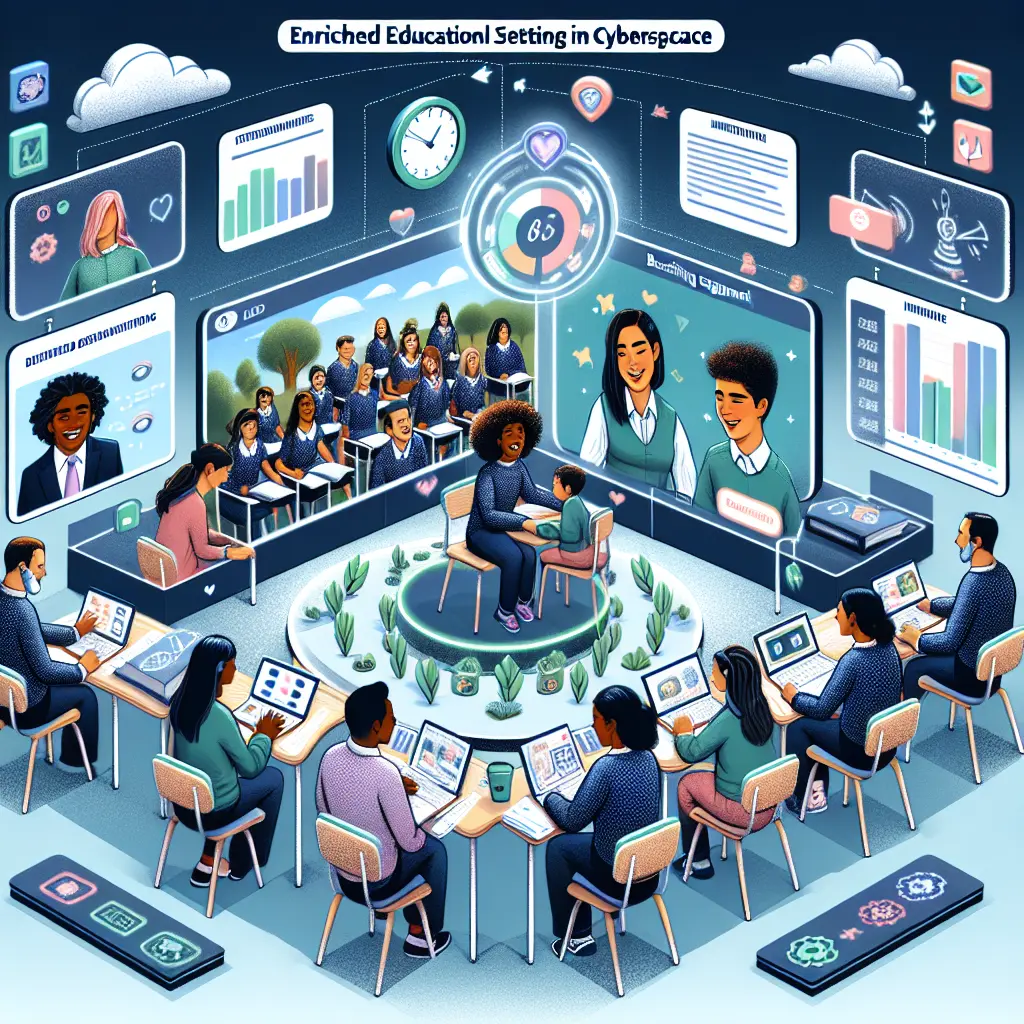
In the ever-evolving landscape of education, the surge in online learning platforms has transformed the way knowledge is disseminated. Yet, one of the perennial challenges remains: How do we keep students engaged in an online environment? With a wealth of digital tools at our disposal and new strategies continually emerging, educators are increasingly equipped to foster higher engagement and more dynamic learning experiences online. Let’s explore some of the cutting-edge techniques and tools reshaping online education.
1. Emphasizing Interactive Online Teaching
To combat the passive consumption of content, interactive online teaching methods are essential. Tools like virtual whiteboards and real-time quizzes enable immediate participation and feedback, essential components for effective e-learning methods. For instance, platforms like Kahoot! and Quizlet transform traditional learning into interactive experiences, making them powerful student engagement tools online.
2. Utilizing Student Engagement Strategies
Personalization plays a crucial role in enhancing online learning. Tailoring coursework to meet individual student interests and career goals can significantly boost motivation in online courses. Techniques such as adaptive learning technology, which adjusts content difficulty based on learner performance, can create a more personalized learning experience that keeps students engaged and invested.
3. Leveraging Online Student Interaction
Creating opportunities for peer interaction is another vital strategy for engaging remote learners. Discussion forums, peer review assignments, and group projects facilitated through collaborative platforms like Google Workspace or Microsoft Teams encourage meaningful connections among students, fostering a sense of community and collaboration in the virtual classroom.
4. Applying Effective E-Learning Methods
The integration of multimedia elements—such as videos, podcasts, and infographics—can enrich learning experiences and cater to different learning styles. For example, incorporating short, impactful video lectures or interactive infographics helps maintain student attention and facilitates easier absorption of complex information.
5. Encouraging Active Learning Online
Active learning involves direct student engagement in the learning process, compelling them to participate actively through problem-solving, case studies, and scenario-based learning. This approach not only enhances digital learning engagement but also improves knowledge retention and application skills.
Recent Innovations and Insights in Online Learning
Top 5 Online Certificates in 2024: According to recent research, the most sought-after online certificates include Data Science, Artificial Intelligence, Digital Marketing, Cybersecurity, and Blockchain Technology. These certificates are favored for their relevance to evolving industry demands and substantial ROI in career advancements (Read more about the top certifications).
Embracing AI to Transform Education: AI’s role in education continues to grow, with tools like AI tutors and personalized learning assistants becoming more prevalent. These innovations align well with established educational methodologies, enhancing both teaching efficiency and student outcomes (Learn more about AI in education).
Competitive Analysis in Education: Understanding market needs and competitor offerings is vital for educational institutions to remain competitive. A thorough competitive analysis involves identifying key competitors, analyzing their content and delivery methods, and refining unique value propositions to stand out in the crowded online education market (Guide to conducting a competitive analysis).
AI Super Skills Bundle: This limited-time offer includes comprehensive training modules on AI technologies like ChatGPT and DALL-E 3, crucial for educators aiming to integrate AI into their teaching practices effectively (Explore the AI Super Skills Bundle).
Work-From-Home Hobbies That Pay: As remote learning parallels remote work trends, understanding intersections like hobbies that can be monetized through teaching online courses offers valuable insights for educators and entrepreneurs alike (Discover lucrative work-from-home hobbies).
Conclusion
The shift towards online education demands an evolution in teaching practices. The integration of interactive online teaching methods, effective e-learning strategies, and innovative student engagement tools are imperative to captivate and educate today’s digital learners. By leveraging technologies like AI and maintaining a keen eye on market trends through competitive analysis, educators can enhance student participation online and ensure a rich, engaging educational experience.
As we continue to navigate these changes, let's commit to continuously adapting and enhancing our approaches to meet and exceed the expectations of our learners. After all, at the heart of these efforts is the unwavering goal of enriching minds and empowering futures.
By Aaron Copeland